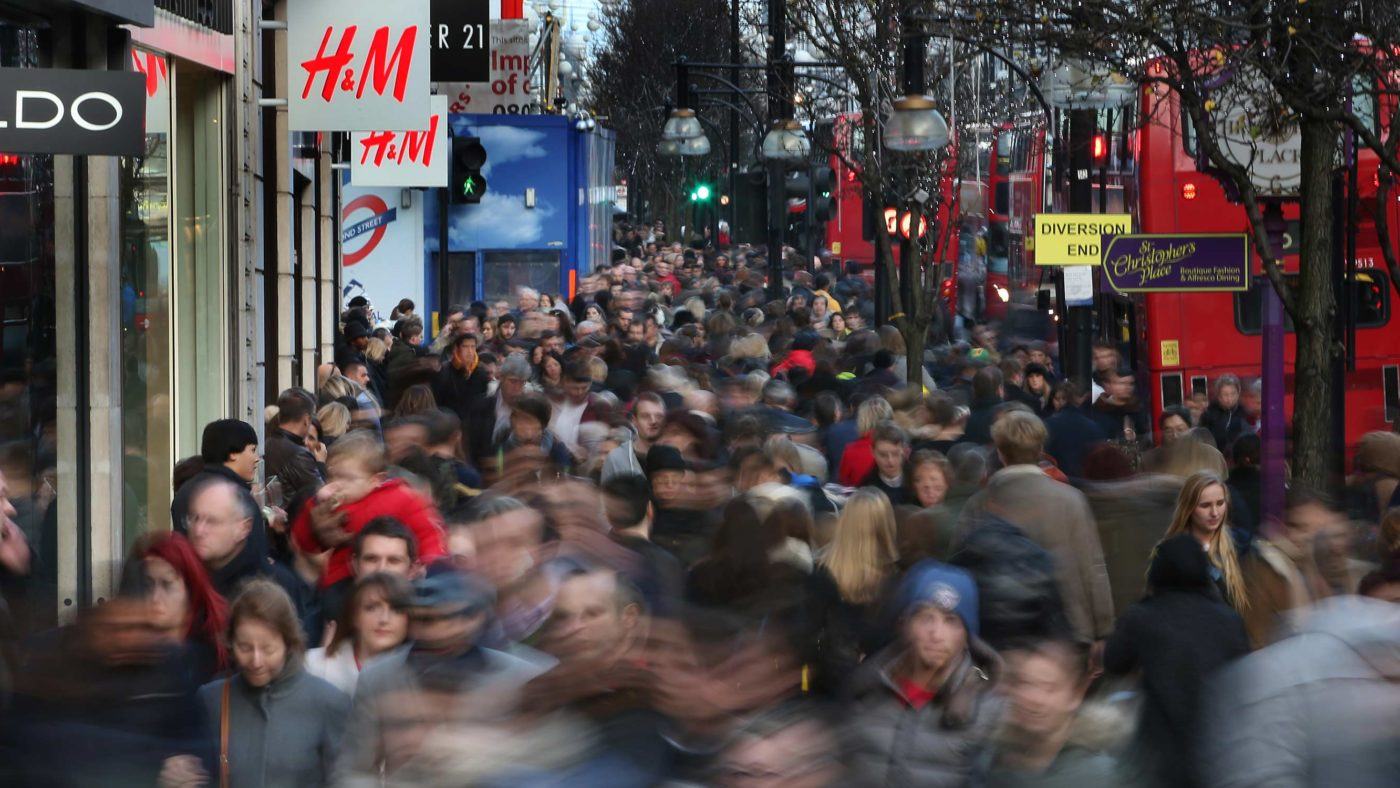Bucking the recent trend of forecasters responding to the good news in the UK economy by becoming more bullish, the British Chambers of Commerce (BCC) have issued a remarkably pessimistic new GDP forecast for 2017: just 1.1 per cent growth.
They call it an “upgrade” and re-assure us that they don’t expect a recession in the next few years, but given recent data a 1.1 per cent annual growth forecast comes as close to predicting a recession as makes no difference.
How so? Well, in 2015, quarterly output grew 0.3 per cent in the first three months of the year, then 0.5 per cent, 0.3 per cent and 0.7 per cent for the other three quarters. That means that if we normalise the quarterly output in the final three months of 2014 to 100, for simplicity, then quarterly output in the first three months of 2015 was 100.3, and then in the other quarters it was 100.8, 101.1, and 101.8.
So the annual output would be 404.0 — i.e. 4.04 times as much as the quarterly output in the final three months of 2014.
So what’s been happening in 2016? In the first three months, quarterly output grew 0.4 per cent, then 0.4 per cent and 0.7 per cent, with the BCC saying it expects 0.5 per cent growth in the fourth quarter. That means overall output for 2016 would be 412.6 — i.e. 4.13 times as much as the quarterly output in the final three months of 2014. Well, 412.6/404.0 = 1.021, so annual output would be 2.1 per cent higher in 2016.
But note that quarterly output by the end of 2016 is a lot more than it was at the start. So even if quarterly output stalled entirely in 2017 (didn’t grow at all), annual output would still be higher — in fact, 0.8 per cent higher. That’s pretty close to BCC’s annual forecast for 2017, even with no more growth whatever in quarterly output!
If we had only 0.3 per cent growth in the first three months of 2017 — which would be a marked slowdown — then for the rest of the year the BCC forecast would mean there being no growth in the economy whatever. If the first three months of 2017 grew as rapidly as the last three of 2016 (i.e. 0.5 per cent), we’d need two quarters of contraction of 0.2 per cent to get to overall annual growth of 1.1 per cent.
Get more from CapX
Follow us on Twitter
Like us on Facebook
Sign up to our email bulletin
So, essentially, the BCC forecast means no growth in quarterly output for the whole of 2017 from the end of March, and possibly a contraction.
Is that impossible? Obviously not. There could always be some unexpected or only partially anticipated disaster hit the economy. Perhaps the most plausible candidate at this stage would be a new banking crisis brought on by the collapse of the Italian banking sector and Italian withdrawal from the euro.
An alternative long-shot possibility might be Marine Le Pen winning the French Presidency and France withdrawing from the EU. But neither of those events, even if they occur, seem all that likely to happen quickly enough to have the impact the BCC’s forecast implies – at least at this stage.
The BCC appears to regard its gloom as something to do with the Brexit vote — the economy grinding to a sudden halt after Article 50 is triggered. But why would that happen? We had the referendum, and there was no slowdown at all after that.
If firms and consumers were going to react so negatively to discovering that we are going to leave the EU, why has it not already happened? Is the idea that, up to now, most of the economy has not really believed we’d leave, but once Article 50 is triggered they’ll truly start believing it?
Elsewhere on CapX
Is Britain walking into a new poverty trap
Does diplomacy matter any more?
The British economy sails steadily on towards Brexit
When a major event occurs in an economy, changing its long-term growth outlook, the impact should start to be felt nearly straight away in the economy. Investors anticipate future growth, and if future growth will be less then investing today becomes less attractive.
Consumers smooth their consumption across their lifetimes, based on what they expect their lifetime wealth to be. Permanently lower growth in the future means lower wealth and thus less to consume overall, so also means less to consume today.
If leaving the EU would really mean a long-term loss of GDP growth of 6 per cent by 2030, as the Treasury long-term Brexit impact model (along with the OECD and IMF models) predicted, that should have meant lower consumption and investment immediately after the referendum vote.
The Treasury’s short-term Brexit impact forecast called this the “transition effect”. There was no such response from investment or consumption at all.
So, whatever most economists’ models said, the economy itself doesn’t believe it will be materially worse off over the long-term. If the UK voting to leave the EU didn’t make the economy believe that, why would triggering Article 50 change things so much?
The BCC’s forecast stagnation from April 2017 might just conceivably happen, but it’s hard at this stage to grasp how Brexit could be responsible.


